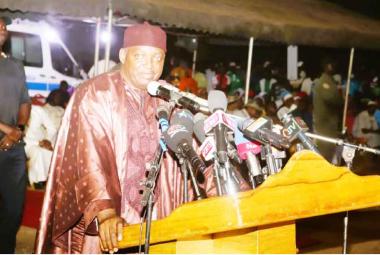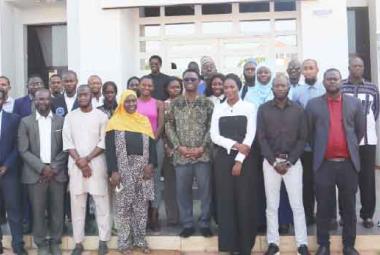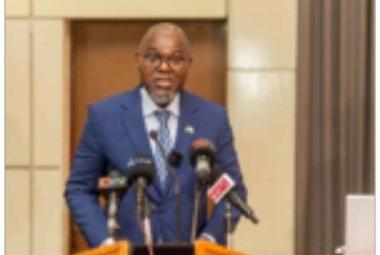By Modou Kanteh
As part of the process of developing the sardinella and Ethmalose Fisheries Management Plan for The Gambia, the Ministry of Fisheries, with the support of the FAO EAF-Nansen Programme, last week organised a day long validation workshop to present and validate the Sardinella Fisheries Management Plan.
Delivering his statement at the workshop, the Deputy Director of Fisheries, Momodou Sidibeh, recalled that Sardinella and Ethmalose in The Gambia face many challenges such as overexploitation, and the effects of climate change. He said in the face of these major concerns, it is urgent to act in accordance with CECAF’s scientific recommendations which stipulate an immediate 60% reduction in fishing effort and mortality.
“Sardinella and Bonga species are in high demand because they are traditionally consumed by the people of the sub-region, as they constitute an affordable source of animal protein, micronutrients and fatty acids,” Sidibeh said.
He said these fisheries stocks are strategic for the entire sub-region and their sustainable management must therefore be a priority for all concerned countries.
The workshop, which brought together more than 40 participants from all the main fishing sites in The Gambia, marked an important stage in the process of drawing up the management plan, which began in 2021. For more than two years there has been an initial phase of consultation and diagnosis among stakeholders to identify major challenges and take necessary measures to manage these fisheries.
The validation workshop marked the end of the process of developing the development plan. It allowed the stakeholders to make final recommendations and validate the Sardinella Fisheries Management Plan. It was also an opportunity to update the timetable for the validation and adoption process of the plan.
The workshop also gave The Gambia the opportunity to take a step towards adopting the ecosystem approach to fisheries, a holistic and risk-based management approach that is promoted by the EAF-Nansen Programme and considered by FAO to be the principal framework for achieving sustainable fisheries. It takes into consideration the ecological, human, and social dimensions of sustainability, aiming to reconcile a broader set of technical, policy, and governance sustainability objectives in a more participatory and adaptive fashion.
The EAF-Nansen Programme is a long-standing partnership between the Food and Agriculture Organization of the United Nations (FAO) and Norway, executed in close collaboration with the Norwegian Institute for Marine Research (IMR).
The Programme is also one of the “Actions of the Decade” endorsed under the United Nations Decade of Ocean Science for Sustainable Development (2021-2030).







